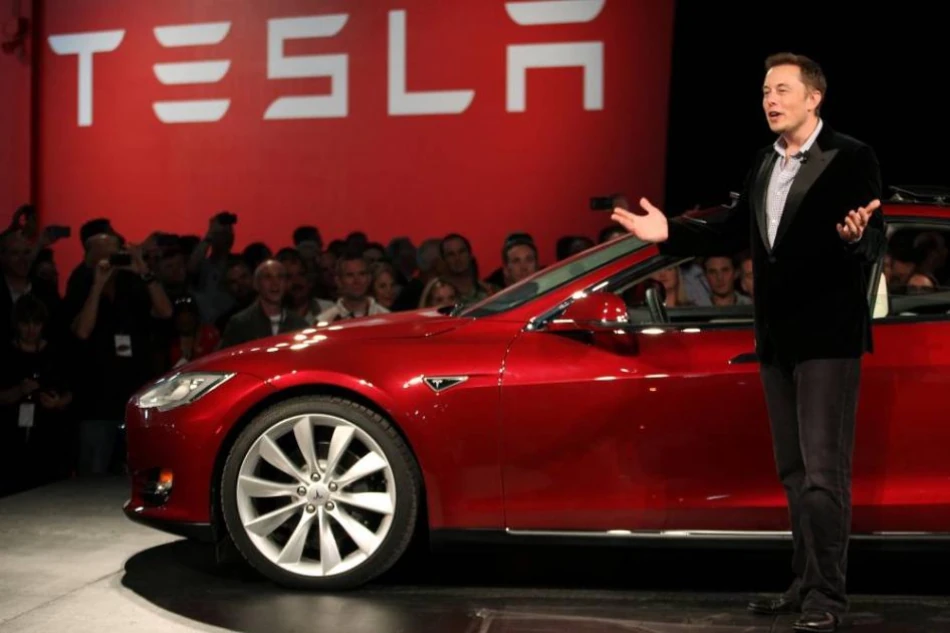
Elon Musk Invests $1 Billion in Tesla Shares, Boosts Ownership Stake
Musk's $1 Billion Tesla Stock Purchase Signals Strategic Confidence Amid Compensation Battle
Tesla shares surged 6% in pre-market trading Monday following CEO Elon Musk's surprise $1 billion stock purchase—his first open-market acquisition since February 2020. The massive insider buying spree, which occurred just weeks before a crucial shareholder vote on his controversial $975 billion compensation package, sends a powerful signal about the company's trajectory and Musk's unwavering commitment to Tesla's future.
The Numbers Behind the Bold Move
Musk acquired 2.57 million Tesla shares on Friday at varying prices, bringing his total stake to approximately 13% of the company. The timing is particularly striking given Tesla's recent momentum—shares have climbed over 25% in the past three months despite Friday's modest decline.
This represents Musk's first significant open-market purchase in over four years, a period during which he primarily acquired shares through stock option exercises rather than direct market transactions. The scale of the purchase—equivalent to roughly $1 billion—demonstrates unprecedented personal financial commitment to the company he founded.
Strategic Timing Ahead of Compensation Vote
The stock purchase comes at a critical juncture for Tesla and Musk personally. Shareholders will soon vote on a new compensation package that could reach $975 billion based on ambitious performance targets. This timing is hardly coincidental—insider purchases typically serve as powerful endorsements of future performance expectations.
The proposed compensation structure ties Musk's rewards directly to Tesla's market capitalization and operational milestones, creating alignment between executive incentives and shareholder returns. His willingness to deploy personal capital alongside these ambitious targets suggests confidence in achieving the package's demanding benchmarks.
Market Psychology and Investor Implications
Insider buying at this scale carries significant psychological weight for institutional and retail investors. When executives purchase shares with their own money—rather than receiving them through compensation—it typically indicates strong conviction about near-term catalysts or undervaluation.
For Tesla specifically, this move could signal Musk's confidence in several key developments: the company's progress in autonomous driving technology, expansion in energy storage markets, or potential breakthroughs in manufacturing efficiency. Given Tesla's history of volatile earnings and ambitious guidance, insider conviction becomes a crucial data point for risk assessment.
Comparing CEO Capital Deployment Strategies
Musk's approach contrasts sharply with typical CEO behavior during uncertain market conditions. While many executives have reduced their equity exposure in recent years, particularly in the tech sector, Musk is doubling down on Tesla's prospects. This mirrors his previous pattern of increasing personal stakes during periods of operational transition or market skepticism.
The move also reflects Tesla's unique position among automotive manufacturers. Traditional automakers rarely see such concentrated insider buying, partly due to lower growth expectations and more predictable business models. Musk's purchase reinforces Tesla's identity as a technology company rather than a conventional car manufacturer.
Implications for Tesla's Strategic Direction
This capital commitment likely reflects Musk's confidence in Tesla's evolving business model beyond vehicle manufacturing. The company's energy division, autonomous driving capabilities, and potential robotics ventures represent significant value creation opportunities that may not be fully reflected in current valuations.
The purchase also provides Musk with additional voting power ahead of crucial strategic decisions, including potential expansion into new markets, manufacturing capacity increases, or technology partnerships. With regulatory scrutiny intensifying around autonomous vehicles and energy storage, having aligned leadership becomes increasingly valuable for long-term execution.
Most Viewed News

 Omar Rahman
Omar Rahman






